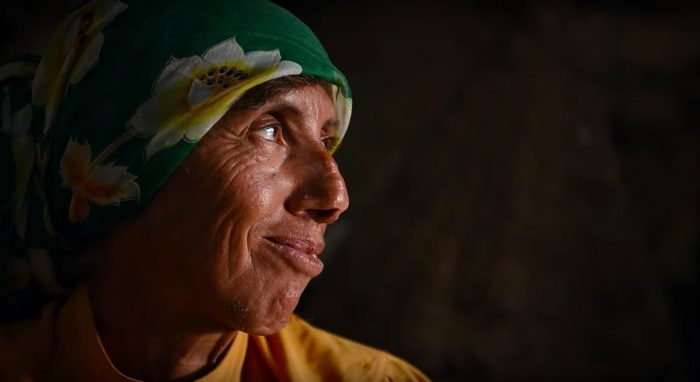
The documentary Honeyland is about a fiftyish Macedonian woman named Hatidze, who lives in an otherwise abandoned mountain village. She cares for her mother, who is blind and bedridden, and she clambers over rocky mountains to collect honeycombs and bees; she sells the honey in a nearby city for a living.
Suddenly, a thoroughly disorganized family moves in next door, sprawling litter and rowdy kids across the previously serene landscape. The father, Hussein, thinks that he will strike it rich raising cattle and bees; the fact that it’s not that easy utterly escapes him. Hussein is foolish, makes the lazy choice at every opportunity and blames the resultant misadventures on others.
Despite Hatidze’s best efforts, her mother’s health declines and Hussein’s self-made disasters continue. That’s all that happens in Honeyland. As my longtime readers will know, I’m more patient with the slowly paced, indie cinéma vérité than the next guy; but but I lost interest in Honeyland. The only reason I watched Honeyland to the end was because The Wife wanted to see if something more interesting was going to happen.
In fact, the only reason that I’m writing about this film at all is that it has somehow been Oscar-nominated for both the Best International Film and the Best Documentary, which I find baffling.
Reportedly, the filmmakers lived in tent in the remote village and filmed Honeyland over four years.
Hatidze is sweet, decent and fully aligned with popular values of sustainability. She has a sense of humor and some measure of snaggle-toothed charm. The film is only one hour 26 minutes, but it seems longer. I streamed Honeyland, but I don’t know why you should.
